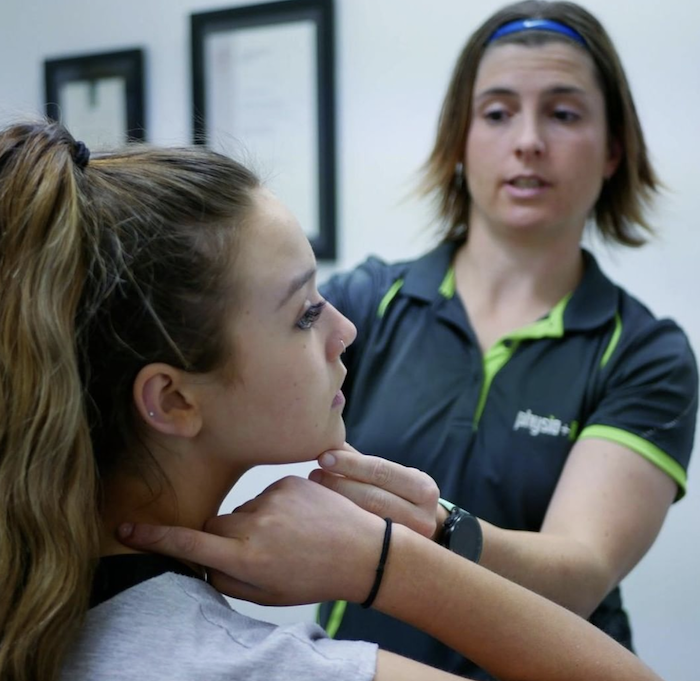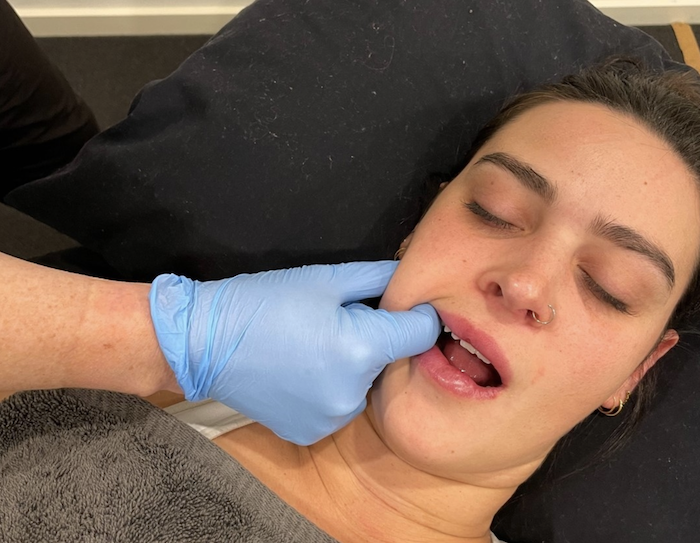Jaw pain! What is your TMJ?
The anatomical name for your jaw joint is actually your temporomandibular joint or TMJ for short!
The jaw joint is one of the most used joints in the body- think about how often you talk, eat, sleep talk, grind your teeth, and even breathe! All of these actions involve the TMJ
So why is this important information? The TMJ is a joint surrounded by muscles that move it and innervated by the nervous system…just like any other joint in your body like your neck.
This also means that this joint can suffer overuse, poor biomechanics, muscle aches and pains, fascial stiffness, trigger points, soft tissue pain, joint pain, nerve pain to name a few! It sometimes needs a bit of TLC just like the rest of your musculoskeletal system. Its also more common than you think!
Up to 1/5th of the general population will have TMJ issues, but very few will know where to seek treatment! It is most common in the 20-40s age group and women tend to suffer issues more than men

How will you know if your jaw is causing your musculoskeletal pain?
You should always consult with your myotherapist or physiotherapist to confirm if your pain is coming from your TMJ, however some of the pain presentations are:
- clicking of the joint infront of your ear (your TMJ)
- pain on eating particular chewy foods such as apples or steak
- pain in your teeth despite a dentist not finding any tooth/gum pathology
- Trigger point pain patterns (see our Instagram posts) which feels like achy muscular pain in areas of the face and head such as along the cheek bone, in front of the ear, tooth pain, eyebrown pain, around the ear and across the cheeks.
- Jaw joint issues can also cause or be contributing to headaches and migraines.
- Jaw biomechanics can interfere with your neck range of motion
- Difficulty opening or moving your jaw
- Bruxism: if you clench or grind your teeth (watch out! You may do this as you sleep) you may also have TMJ pain and dysfunction. Note stress, psychological issues and social factors increase these habits and promote a tight jaw
- Jaw locked open or closed
- Pain in and around the jaw post op, post dental work or dental issues OR form physical trauma
- Wearing a face mask (thanks Covid) can cause you to protrude your lower jaw bone out and mis align the joint and teeth.
Will the TMJ effect other areas of the body?
Absolutely! When we look at a joint that is not functioning well we also look at structures around it. When the jaw is not working at its best the neck commonly gets involved too. Head and neck posture change depending on the position of your jaw. This can lead to muscle tension and joint issues in the neck and potentially also cause headaches and migraines and pain that can run into your upper shoulders (upper “trap” muscles)
Fascia is connective tissue found all over the body (look out for a blog post purely on fascinating fascia!) As Myotherapists we often work with muscles and other structures that are linked by fascia as this will have a flow on effect on other areas of the body. There is fascial connections between the jaw muscles and muscles of facial expression. There are also fascial connections between breathing muscles and the tongue and muscles that move the hyoid bone (Adams apple) so having a restricted tongue will effect swallowing and voice production
Breathing! Who knew there could be postural complications and insufficiencies with something as vital as breathing! . Having healthy jaw and tongue posture and strength can lead to optimal breathing mechanics which has a very large flow on effect to your brain, stress levels and more….This is a whole blog post in itself (breathing) so pls see Cassies blog on the P+F website for more details……

So what can Physio and Fitness do to help your TMJ joint?
To start with we will do a thorough history taking (including asking dental history, if you breathe through your mouth or nose at night and any trauma to the area) then look at range of motion, where the pain complaint is, and what type of pain is occurring. We will ask you the specific pain history of your jaw (when did it start, what makes it better/worse etc).
There may be times where we need to refer to a specialist (such as a dentist to have a plate fitted etc), otherwise a lot of jaw pain will be within our scope of practice!
Cat is a myotherapist at physio and fitness that treats the jaw as her specialty. Her treatment methods include soft tissue/fascial treatments both inside and outside of the jaw, myofascial dry needling, mobilizations of the joint and exercises/stretches to take home. Most of the time the neck is looked at as well. We will discuss the root cause of the issue to prevent the condition getting worse or re-occurring once fixed. You will also have access to cat via email to make sure we are getting the right tailored treatment that is individual to you as a client and you are not left pondering if you have questions between treatments.
